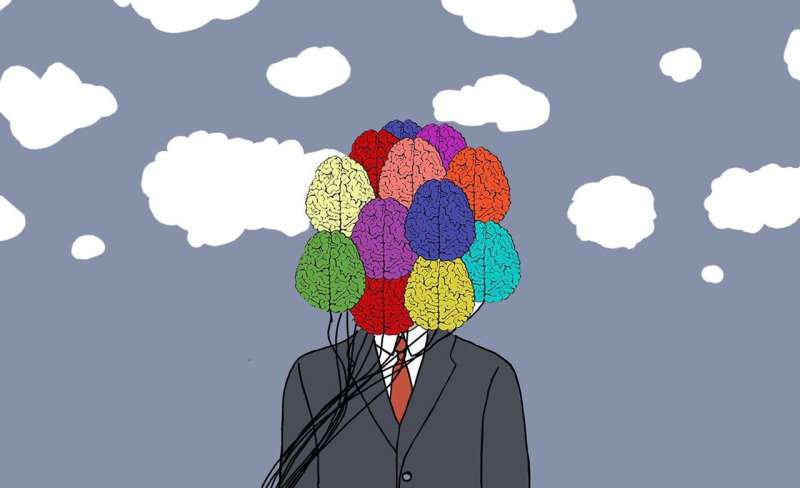This article has been reviewed according to Science X's editorial process and policies. Editors have highlighted the following attributes while ensuring the content's credibility:
fact-checked
peer-reviewed publication
trusted source
proofread
Neuroscientists successfully test theory that forgetting is actually a form of learning

Neuroscientists today report the first results from experimental tests designed to explore the idea that "forgetting" might not be a bad thing, and that it may represent a form of learning—and outline results that support their core idea.
Last year the neuroscientists behind the new theory suggested that changes in our ability to access specific memories are based on environmental feedback and predictability. And that rather than being a bug, forgetting may be a functional feature of the brain, allowing it to interact dynamically with a dynamic environment.
In a changing world like the one we and many other organisms live in, forgetting some memories would be beneficial, they reasoned, as this can lead to more flexible behavior and better decision-making. If memories were gained in circumstances that are not wholly relevant to the current environment, forgetting them could be a positive change that improves our well-being.
In Cell Reports they present the first in a series of new experimental studies where the effect of natural, "every day" forgetting was investigated with respect to how normal forgetting processes affect particular memories in the brain.
The team studied a form of forgetting called retroactive interference, where different experiences occurring closely in time can cause the forgetting of recently formed memories. In their study, mice were asked to associate a specific object with a particular context or room, and then recognize that an object that was displaced from its original context. However, mice forget these associations when competing experiences are allowed to 'interfere' with the first memory.
To study the result of this form of forgetting on memory itself, the neuroscientists genetically labeled a contextual "engram" (a group of brain cells that store a specific memory) in the brains of these mice, and followed the activation and functioning of these cells after forgetting had happened.
Crucially, using a technique called optogenetics they found that stimulation of the engram cells with light retrieved the apparently lost memories in more than one behavioral situation. Furthermore, when the mice were given new experiences that related to the forgotten memories, the 'lost' engrams could be naturally rejuvenated.
Dr. Tomás Ryan, Associate Professor in the School of Biochemistry and Immunology and the Trinity College Institute of Neuroscience at Trinity College Dublin, is lead author of the just-published journal article. Dr. Ryan, whose research team is based in the Trinity Biomedical Sciences Institute (TBSI), said, "Memories are stored in ensembles of neurons called 'engram cells' and successful recall of these memories involves the reactivation of these ensembles."
"By logical extension, forgetting occurs when engram cells cannot be reactivated. However, it is increasingly becoming clear that the memories themselves are still there, but the specific ensembles are not activated and so the memory is not recalled. It's as if the memories are stored in a safe but you can't remember the code to unlock it."
Dr. Livia Autore, Irish Research Council (IRC) Postgraduate Scholar, who spearheaded this work in the Ryan Lab in Trinity, added, "Our findings here support the idea that competition between engrams affects recall and that the forgotten memory trace can be reactivated by both natural and artificial cues as well as updated with new information. The continuous flow of environmental changes leads to the encoding of multiple engrams that compete for their consolidation and expression."
"So while some may persist undisturbed, some will be subjected to interference by new incoming and prevailing information. However, the interfered memories can still be reactivated by surrounding cues leading to memory expression or by misleading or novel experiences ending up in an updated behavioral outcome."
Because we now know that "natural forgetting" is reversible in certain circumstances, this work has significant implications for disease states—such as in people living with Alzheimer's disease for example, where these every day forgetting processes may be mistakenly activated by brain disease.
More information: Livia Autore et al, Adaptive expression of engrams by retroactive interference, Cell Reports (2023). DOI: 10.1016/j.celrep.2023.112999



















